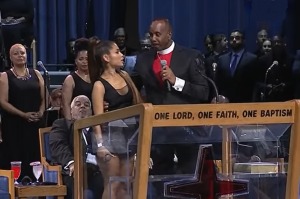Verbally Abusive Coach May Have Contributed to Athletes Depression
Sometimes researchers conduct a study expecting a certain result -- only to be surprised to find that the opposite is true.
That's what happened when a team led by Dr. Daniel Merenstein, an associate professor of family medicine at Georgetown University School of Medicine, surveyed current and former college athletes to see which group experienced higher levels of depression.
"We expected to see a significant increase in depression once athletes graduated," Merenstein said, "but by comparison it appears the stress of intercollegiate athletics may be more significant than we and others anticipated."
Indeed, the analysis of 280 responses revealed that nearly 17 percent of current college athletes "had scores consistent with depression" - more than double that of former college athletes.
That survey, published in the current issue of Sports Health, came immediately to mind when the news broke this week that Rutgers University basketball coach Mike Rice had been fired for physically and verbally abusing his players.
Merenstein's assumption was that former athletes would experience "loss of social support from teammates, coaches and advisors, and that former athletes may not maintain peak physical condition - all possible factors for depression."
When he discovered that current college athletes were twice as likely to be depressed, he speculated that "overtraining, injury, pressure to perform, lack of free time or stress from schoolwork" could be contributing to their increased susceptibility to depression.
He did not include grotesque bullying by coaches as a factor -- but the Rutgers incident suggests he should add it to the list. Rice was out of control, and the players were his victims. We found that out when ESPN obtained a 30-minute video of clips of Rice's practice sessions from 2010-2012. The video shows Rice throwing basketballs at his players' heads -- and shoving, grabbing and kicking them.
He screams obscenities and slurs at his players, using language that I could not possibly repeat here and that Rice himself would never have dared use in public.
The effect on the players?
Eric Murdock, a former director of player development for Rutgers, told ESPN, "There were some players who couldn't sleep at night, who wasn't eating, who didn't want to come to the gym." Three of them transferred to other schools, he said. You have to believe that might bring on depression.
And there is this damning detail: Murdock was fired in July after complaining to Rutgers athletic director Tim Pernetti about Rice's behavior. Murdock then showed the video to Pernetti in November. That prompted Pernetti to fine Rice and suspend him for three games in December -- but he did not publicly disclose the contents of the video and kept Rice on as coach. The cover-up ended when the video hit the Internet, and Pernetti was essentially forced to fire Rice.
Murdock, meanwhile, says he intends to sue the school for wrongful termination.
Sports fans know that coaches can be obnoxious tyrants -- but few stop to consider how many coaches fit that description, how severe the abuse might be, or how harmful the consequences.
As Andrew Sharp of SBNation noted, Rutgers might be the latest example of schools failing their athletes, "but there are plenty of other schools with the exact same problem." He adds that the Rice videos "weren't all that extreme considering what we've heard from other programs."
Wow.
John Amaechi, who played his college basketball for Vanderbilt and Penn State, and later in the NBA, wrote in a piece for CNN that he knows "firsthand" what it's like to be abused by a coach: "Frankly, you can't print the way I was treated in some sporting environments," he wrote. "At a major U.S. university, I had an assistant coach who would engineer drills to maximize the chance of fighting or conflict and who frequently called his players (unprintable).
He, too, says coaches like Rice "are not rare, they are simply rarely caught on tape, rarely exposed and rarely challenged."
He asks if we would tolerate such behavior from French or math teachers claiming they were only trying to motivate their students. Rice is not a monster. Several of his players have come to his defense saying he helped them academically and socially. Still, he simply felt free to disregard the rules of civil society when it suited him.
The repercussions at Rutgers have been severe. Rice is gone, as is his assistant coach, Jimmy Martelli. Pernetti resigned Friday. Some faculty members are calling for the removal of university president Robert Barchi.
The school's reputation has been damaged.
The public backlash will probably convince bully-coaches at other schools to lay low for a while -- put on the friendly face they show to parents when recruiting kids out of high school but readily discard in the gym or on the field.
But will schools with major sports programs suddenly insist that athletes be treated like people and not animals? Will they start firing abusive coaches even if they win games?
Probably not.
And that may be the most depressing fact of all.





























